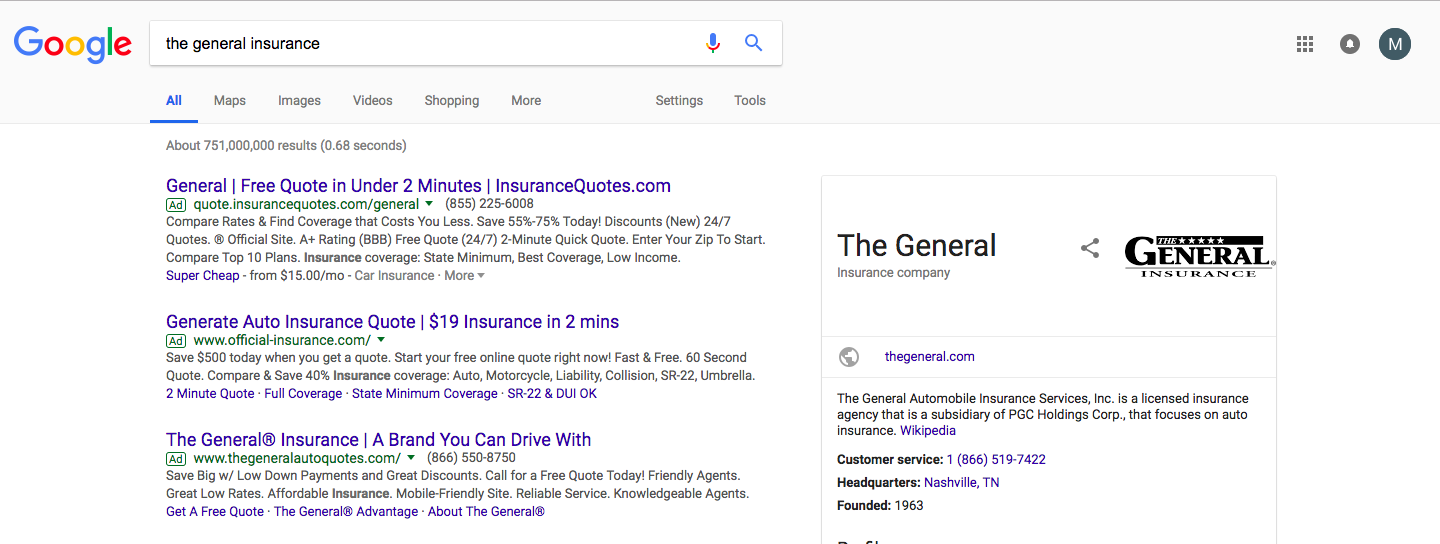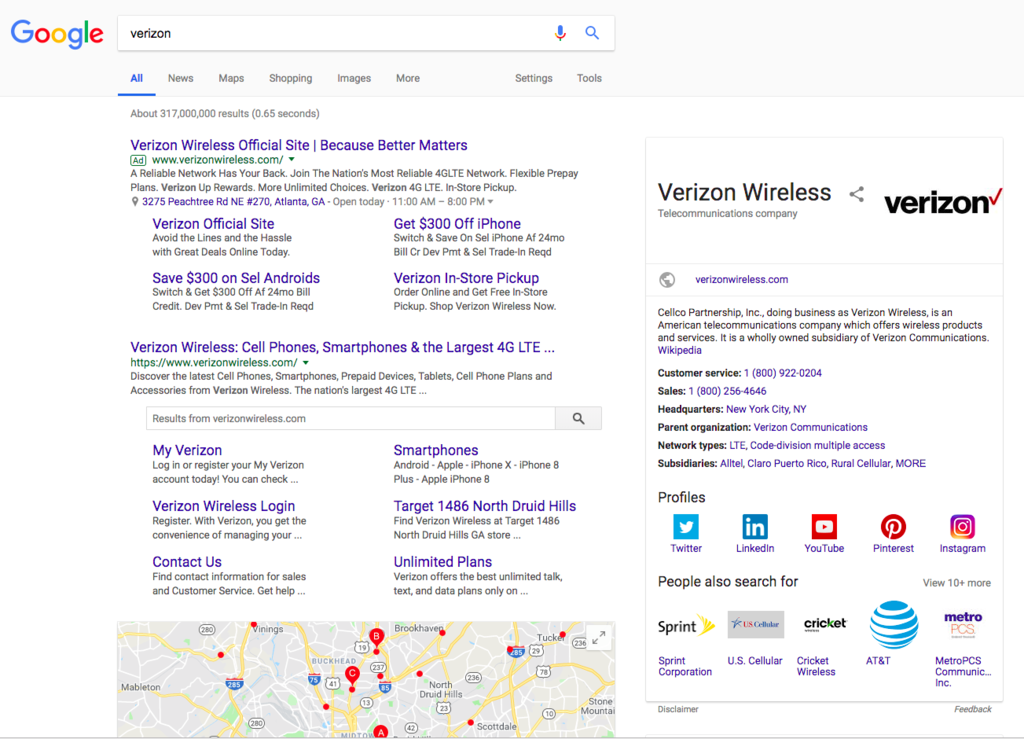Vert Blog
6 Reasons to Bid on Your Branded Keywords
Paid search sits at a very interesting crossroads of paid advertising because it is almost exclusively triggered by user hand-raising via search queries. This uncovers user intent – a tall task for a marketer to research on their own. Among all relevant keywords for your brand, your branded keywords (“home depot” for HomeDepot.com, for example) are your most important battleground. You may be thinking, “If someone is searching for my brand, then they will click on my organic result, so why should I pay for that click?” However, user behavior and the search landscape aren’t that simple. Here are 6 reasons why you should integrate branded keywords and value them as the “sacred” terms within your account.

1) Safeguard Your Own Branded Terms Against Competition
Paid search platforms allow any advertiser to bid on almost any keyword in the universe. That means your competitor can easily bid on your terms with zero legal ramifications. It’s an aggressive tactic but it is very commonly used. No matter how good your SEO is, your competitor always has a chance to pay for an ad placement above you – especially if you aren’t bidding on your own terms. Furthermore, lack of presence on your own branded terms could offer this higher placement at a cheap CPC for your competitors because you aren’t there to compete against them.

2) Tightly Control Your Message
A primary benefit to paid search ads is that you can customize your text ad copy. When structuring and segmenting keywords, serving the right message to users searching for your branded terms is very important. This copy customization allows you to control the messaging and test different strategies very quickly. Based on which branded keyword is triggered, this flexibility could be the key to serving the right message, at the right time, in the right way.
3) Gain More Real Estate
With Google’s recent announcement of paid search ads with more characters and the numerous ad extensions that advertisers can use, paid search lets you take advantage of a lot of space. Callout Extensions, Location Extensions, and Sitelink Extensions are just a few optimizations you can add to your account, at no additional costs. These extensions can make a significant difference when you are trying to dominate the most visible part of the Search Engine Results Page (SERP) after someone searches for your brand. Combine your branded ads with good SEO practices (see the Verizon example below) and you can control all parts above the fold, making it difficult for competitors to edge into your space.

4) Get Efficient Click Traffic at Pennies on the Dollar
Quality Score, a search engine’s weighted score to help determine the winners and costs of each ad position (1 – 10) , can highly affect your Costs Per Click (CPC). Quality Score is, in a sense, the “relevance factor” that prevents any advertiser from just outbidding everybody on the page. It also preserves the most relevant user experience for the search engines. Ideally, you want all of your keywords to have high Quality Scores and efficient CPCs, but these metrics can vary widely across different keywords. Fortunately, branded keywords typically have Quality Scores from ~8 to 10, because they are the most relevant keywords to your branded website. This significantly eases bidding pressure for these keywords and can help bring in traffic in a controlled and cost-efficient manner.
5) Ease User Friction
The assumption that a user searching for a branded term will always end up in the right place may not be true. If someone is searching for “adidas,” ADIDAS might want them to go to the homepage. If that same user is searching for “adidas size 12 mens tennis shoes,” ADIDAS might want to send them to a more specific page. Again, good SEO practices help but it can not necessarily guarantee success, especially when you consider the millions of different ways a user can search for your brand. By bidding on and segmenting all relevant keywords, you can easily funnel users in the right direction for any keyword, no matter how general or specific the search.
6) Garner Data on How Your Users Search and Interact with Your Brand
When your branded keywords are built, live and running, you will be able to see over time (through reports in the platform UIs) how users are searching for your brand at a very granular level. Keywords can be broad or narrow in scope in order to capture any and all user searches (read more about match types here), so catching all branded keywords is tough. However, covering most of your branded keywords can give you valuable insights on what users search for, when they search and how they search, as your data builds. This data is usually much more robust than simple data from Google Trends or even the Keyword Planner. These insights can even stretch to monitoring search activity before and after other adjacent media campaigns and pushes.
More control, quite simply put, is more control, especially when it comes to controlling the keywords most precious to your brand. Coverage on your branded terms is essential to anything from defensive competitor strategies to taking advantage of more ad copy space and richer data. Generally speaking, branded keywords should be your #1 set of keywords – your homeland to protect!


